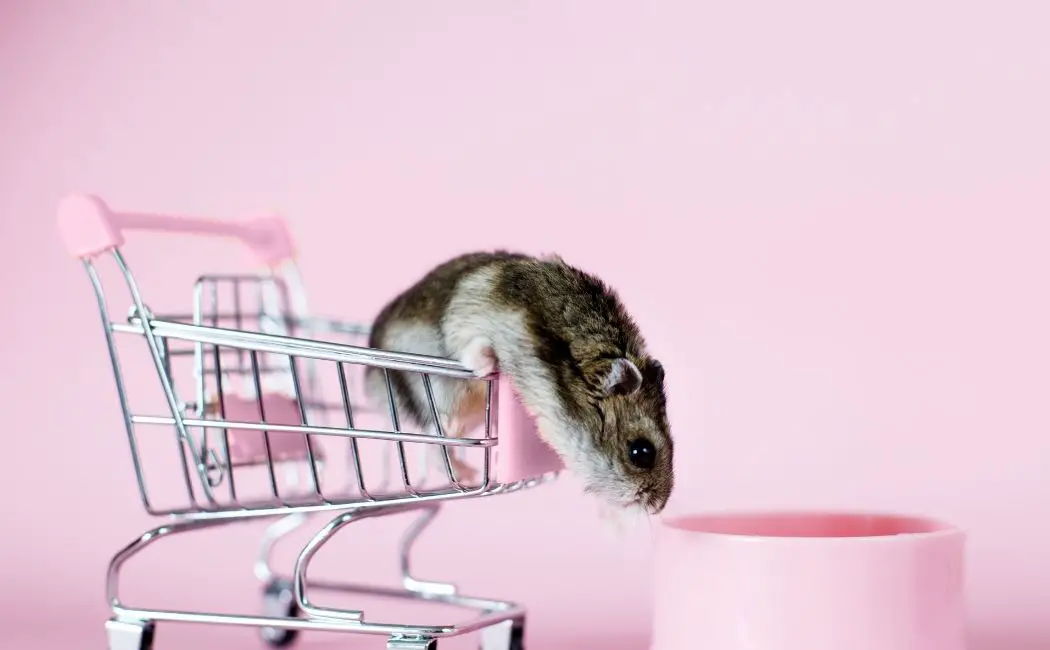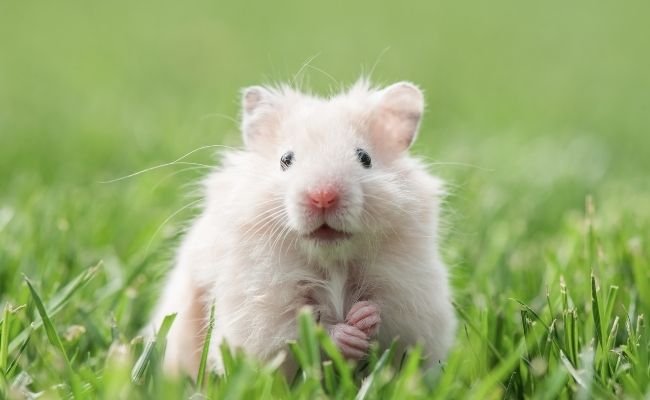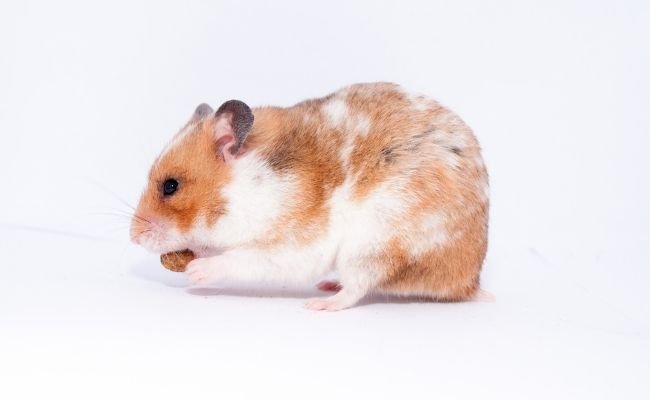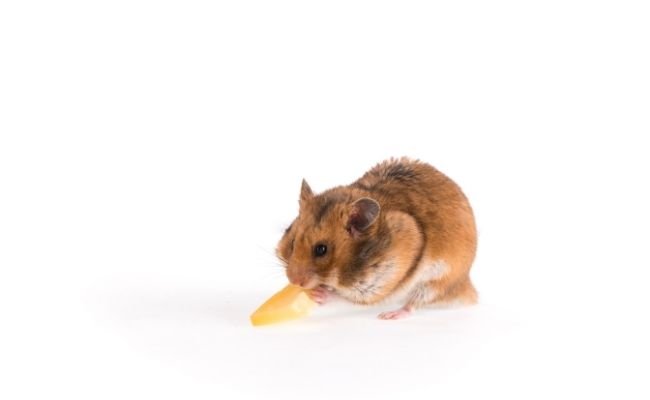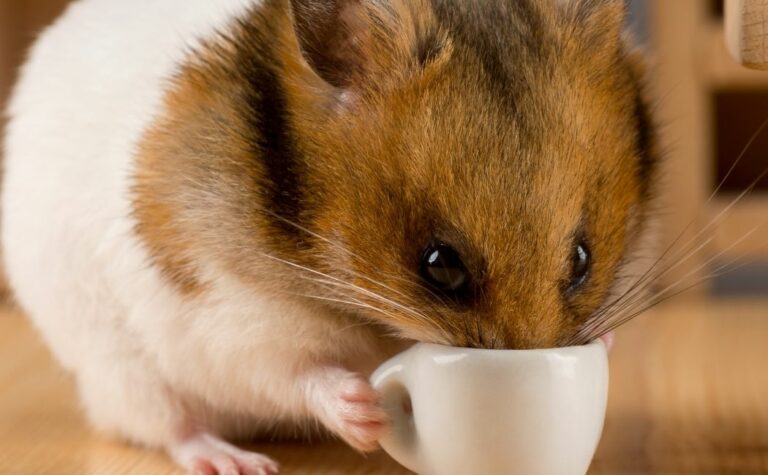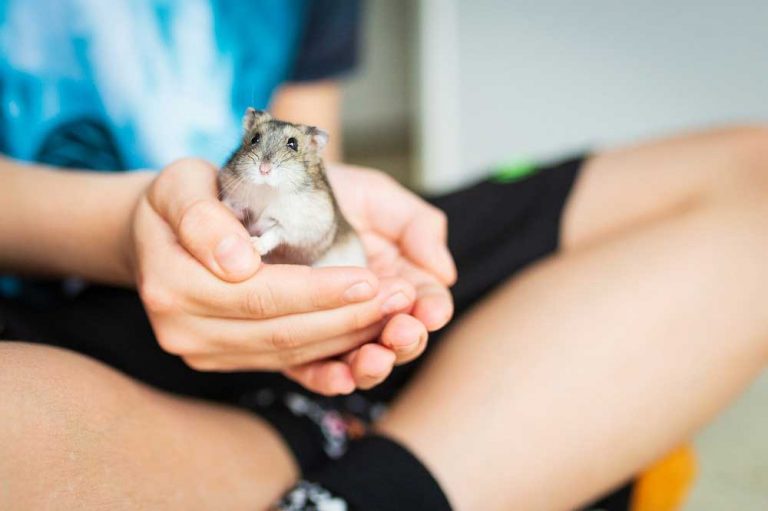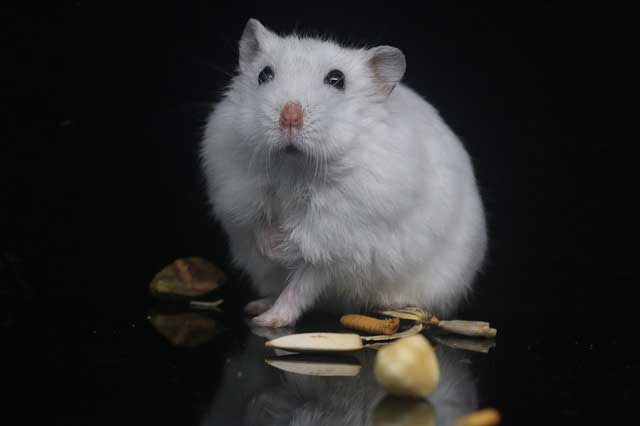Can Hamsters Drink Milk? (Know The Details!)
Yes, hamsters can drink milk. In fact, they would probably prefer whole milk, just like humans. However, whole milk has way too much fat and is not a very healthy option for hamsters. Skim milk is a much better choice since it is lower in fat and calories.
You should never give your hamster chocolate milk as it can be loaded with sugar and chocolate is poisonous to hamsters. Other flavored milk, such as strawberry or vanilla, is also best avoided since they tend to be high in sugar.
Is milk good for hamsters?
Yes, milk is good for hamsters. Just like with humans, milk can help your hamster grow strong bones. It can even help treat the symptoms of cough until you can get your pet to the vet. Not all milk is a good choice, however, and your hamster may not be interested in consuming milk by itself.
When choosing milk for your hamster, it’s important to select one that is low in fat and sugar. You also want to avoid any milk that has been treated with hormones or antibiotics. The best option for your hamster is raw goat’s milk or sheep’s milk, which you can purchase at most health food stores.
If these options are not available, you can give your hamster whole cow’s milk that has been pasteurized but not homogenized.
To introduce milk into your hamster’s diet, start by offering only a small amount mixed with its regular food. If there are no adverse reactions after a few days, you can increase the amount of milk gradually over time.
What are the benefits of giving milk to hamsters?
A hamster’s diet should consist of hay, fresh vegetables, and a small amount of pellets. You can also give your hamster milk as a treat. Milk is a good source of calcium for hamsters and helps keep their bones healthy. It also provides them with protein and other essential nutrients. Giving your hamster milk will help them stay healthy and happy.
Are there any risks associated with giving milk to hamsters?
No, there are no risks associated with giving milk to hamsters. Chocolate milk is loaded with sugar and chocolate is poisonous to hamsters, so it’s best to avoid flavored milk altogether. However, plain milk is perfectly safe for your furry friend and provides a number of health benefits.
Milk is an excellent source of protein and calcium, both of which are essential nutrients for hamsters. Protein helps maintain muscle mass and supports a healthy immune system, while calcium is necessary for strong bones and teeth.
In addition, the lactose in milk can help keep your hamster’s digestive system running smoothly. So feel free to give your hamster a little sip of milk now and then – just be sure to stick with plain varieties without any added flavors or sweeteners.
How much milk can hamsters drink?
Hamsters are small, but they can drink a lot of milk! In fact, they can consume up to 10% of their body weight in milk each day. So, if you have a hamster that weighs 100 grams, he or she could theoretically drink up to 10 ml of milk per day.
Of course, this is just an upper limit and your hamster probably won’t want to drink that much milk. A more realistic amount would be around 2-3 ml per day. Milk is good for hamsters as it provides them with important nutrients like calcium and protein. Just be sure not to give them too much or they might get diarrhea.
What type of milk is best for hamsters?
Hamsters are small, adorable creatures that make great pets. They are relatively easy to care for and don’t require a lot of space, making them ideal for people who live in apartments or small homes. One important aspect of caring for a hamster is providing them with the right type of food and drink. In this article, we will focus on what kind of milk is best for hamsters.
As you may know, humans generally prefer whole milk because it is richer and creamier than skim milk. However, whole milk also contains a lot more fat than skim milk, which can be bad for hamsters (and humans!).
Skim milk is, therefore, the better option for hamsters as it is much healthier. You should never give your hamster chocolate milk as chocolate is poisonous to these little animals. Other flavored kinds of milk, such as strawberry, should also be avoided as they typically contain lots of sugar.
How often can hamsters drink milk?
Hamsters can drink milk 12 times a day until they are 2 weeks old. After 2 weeks, they can drink milk 8 times a day. During this time, it is important to provide the hamster pups with wheat germ, small seeds, and something fresh while feeding the formula.
Should I give my hamster milk every day?
There is no one-size-fits-all answer to the question of how often you should give your hamster milk. However, milk can be a healthy part of your hamster’s diet, and providing it on a daily basis can have some benefits.
One benefit of giving your hamster milk every day is that it can help them grow strong bones. Milk is a good source of calcium, which is essential for bone health. Additionally, the fat in milk can help keep your hamster’s coat healthy and prevent dryness.
Another benefit of giving your hamster milk every day is that it may help to treat the symptoms of cough until you can get them to the vet. The moisture in milk can help to loosen mucus and make coughing less effortful for your hamster.
Just be sure not to give them too much milk at once, as this could cause vomiting or diarrhea. Not all types of milk are suitable for feeding hamsters, however.
For example, cow’s milk contains higher levels of lactose than what is found in human breastmilk or other mammal milk (such as goat’s milk). This means that cow’s milk easily upsets a hamster’s stomach and may cause diarrhea.
If you do decide to give your hamSTER cow’s MILK, Itis best to do so in moderation and always offer freshwater alongside it. You should also avoid giving your hamster vitamin D -enriched milk, as this can lead to toxicity if consumed in large quantities.
Can I give my hamster too much milk?
No, you cannot give your hamster too much milk. Milk can lead to diarrhea and dehydration in small animals, which can be fatal for hamsters.
What are the signs that a hamster is drinking too much milk?
A hamster that is drinking too much milk may have several different signs. One sign is that the hamster may be urinating more often than normal. Another sign may be that the hamster is having diarrhea. If a hamster drinks too much milk, it can cause an upset stomach and lead to other health problems.
Can hamsters drink milk?
Yes, hamsters can drink milk. However, it is important to note that whole milk is not the best option for them. Whole milk has a high-fat content, which can be detrimental to your hamster’s health. Skim milk is a much better choice, as it is lower in fat and contains more nutrients. You should also avoid giving your hamster chocolate milk, as chocolate is poisonous to them.
What are the benefits of giving milk to hamsters?
Hamsters are small, adorable pets that are easy to care for. One of the best things you can do for your hamster is to give them milk. Milk is packed with nutrients and helps keep hamsters healthy and hydrated. Here are some of the benefits of giving milk to your hamster:
1. Milk is a great source of nutrition for hamsters. It contains protein, calcium, phosphorus, and other essential nutrients.
2. Giving milk to your hamster will help keep them hydrated. Hamsters need plenty of water to stay healthy, and milk is a good way to provide it.
3. Milk can help soothe an upset stomach and relieve constipation in hamsters. If your hamster is feeling under the weather, a little bit of milk can help them feel better fast!
4. Some studies have shown that giving milk to hamsters can improve their cognitive function and memory recall ability! So not only is it good for their physical health, but it might also make them smarter too!
How much milk can a hamster drink?
A hamster can drink a lot of milk, but it’s not good for them. Milk has a lot of lactose in it, and hamsters are actually lactose-intolerant. That means that drinking milk can give them diarrhea. So while your hamster might like the taste of milk, it’s best to stick to giving them water.
Is milk good for hamsters?
Yes, milk is good for hamsters. Just like with humans, milk can help your hamster grow strong bones. It can even help treat the symptoms of cough until you can get your pet to the vet. Not all milk is a good choice, however, and your hamster may not be interested in consuming milk by itself.
Milk is rich in calcium and other nutrients that are essential for bone health. In addition, milk has been shown to help relieve coughing in both children and adults. While there is no evidence that milk specifically helps treat coughs in hamsters, it is likely that it would have a similar effect.
If you want to give your hamster milk, choose a low-fat variety and offer it in a small bowl.
Some hamsters may not be interested in drinking milk alone, so you may need to mix it with their regular food or water. If your hamster does not seem to like milk, don’t force them to drink it – there are plenty of other ways to ensure they get the nutrition they need.
What kind of milk is best for hamsters?
When it comes to what kind of milk is best for hamsters, whole milk is probably the preferred option. However, whole milk has a lot of fat and is not very healthy for hamsters.
A much better option is skim milk, which has no fat and is packed with nutrients that are essential for hamsters. You should never give your hamster chocolate milk as it can be loaded with sugar and chocolate is poisonous to hamsters.
Other flavored milk, such as strawberries, should also be avoided as they are often high in sugar.
How often should hamsters drink milk?
Syrian hamsters, or other full-sized species of hamster, should drink milk 1 milliliter 12 times a day around the clock until the hamster pups are 2 weeks old. After 2 weeks, feed them 2 milliliters 8 times a day.
What are the side effects of giving milk to hamsters?
There are a few potential side effects to giving milk to hamsters. The first is that milk can cause diarrhea in hamsters. This is because their digestive systems are not designed to process lactose, the sugar found in milk. Milk can also upset the delicate balance of bacteria in a hamster’s gut, leading to gastrointestinal problems.
Another possible side effect of giving milk to hamsters is that it can lead to obesity. Hamsters have a natural instinct to hoard food, and if they’re given unlimited access to milk, they may consume too much and become overweight. This can put a strain on their internal organs and shorten their lifespan.
Finally, giving milk to hamsters may simply be unnecessary. Hamsters are able to obtain all the nutrients they need from a well-balanced diet of commercial pelleted food, fresh vegetables, and water. There’s no evidence that adding milk into the mix offers any benefits for these small creatures.
Is it necessary to give milk to hamsters?
Hamsters are small, furry animals that make popular pets. Like many other small mammals, hamsters can benefit from drinking milk.
Milk provides essential nutrients like calcium and protein, which can help to keep your hamster’s bones strong. It can also help to treat the symptoms of cough until you can get your pet to the vet. However, not all types of milk are suitable for hamsters, and some hamsters may not be interested in drinking milk by themselves.
If you’re considering giving milk to your hamster, it’s important to consult with a veterinarian first to ensure that it’s the right decision for your pet.
How do I know if my hamster is drinking too much milk?
If you’re wondering whether your hamster is drinking too much milk, there are a few things to keep in mind. First of all, it’s important to know that hamsters typically don’t drink milk at all. In the wild, they get their hydration from eating plants and vegetables.
So if your hamster is drinking milk on a regular basis, it’s probably because they enjoy the taste or because they’re used to getting their hydration from you.
That said, there are a few signs that your hamster may be drinking too much milk. If you notice them frequently licking their water bottle or bowl, this could be a sign that they’re not getting enough hydration from their water alone. You might also notice them urinating more often than usual; this could be another sign of dehydration.
If you’re concerned that your hamster is drinking too much milk, talk to your veterinarian about how much water they should be getting each day and what type of food would be best for them.
What are some alternatives to milk for hamsters?
There are a few alternatives to milk that you can give your hamster. One is a commercial milk replacer called KMR. This replacer is formulated specifically for kittens, but it can also be given to orphaned baby hamsters. It comes in a ready-to-use formula and is relatively easy to find.
Another alternative is goat’s milk. Goat’s milk is higher in fat than cow’s milk, which makes it more similar to the mother’s Milk that young hamsters would drink. You can find goat’s milk at most health food stores or online. Just be sure to get whole goat’s milk and not skimmed or reduced-fat versions, as these will not have enough nutrients for your hamster.
Finally, you could also make your own homemade hamster milk by mixing evaporated milk, water, honey, and yogurt together. This recipe mimics the composition of mother’s milk and has been shown to be nutritionally complete for young hamsters.

